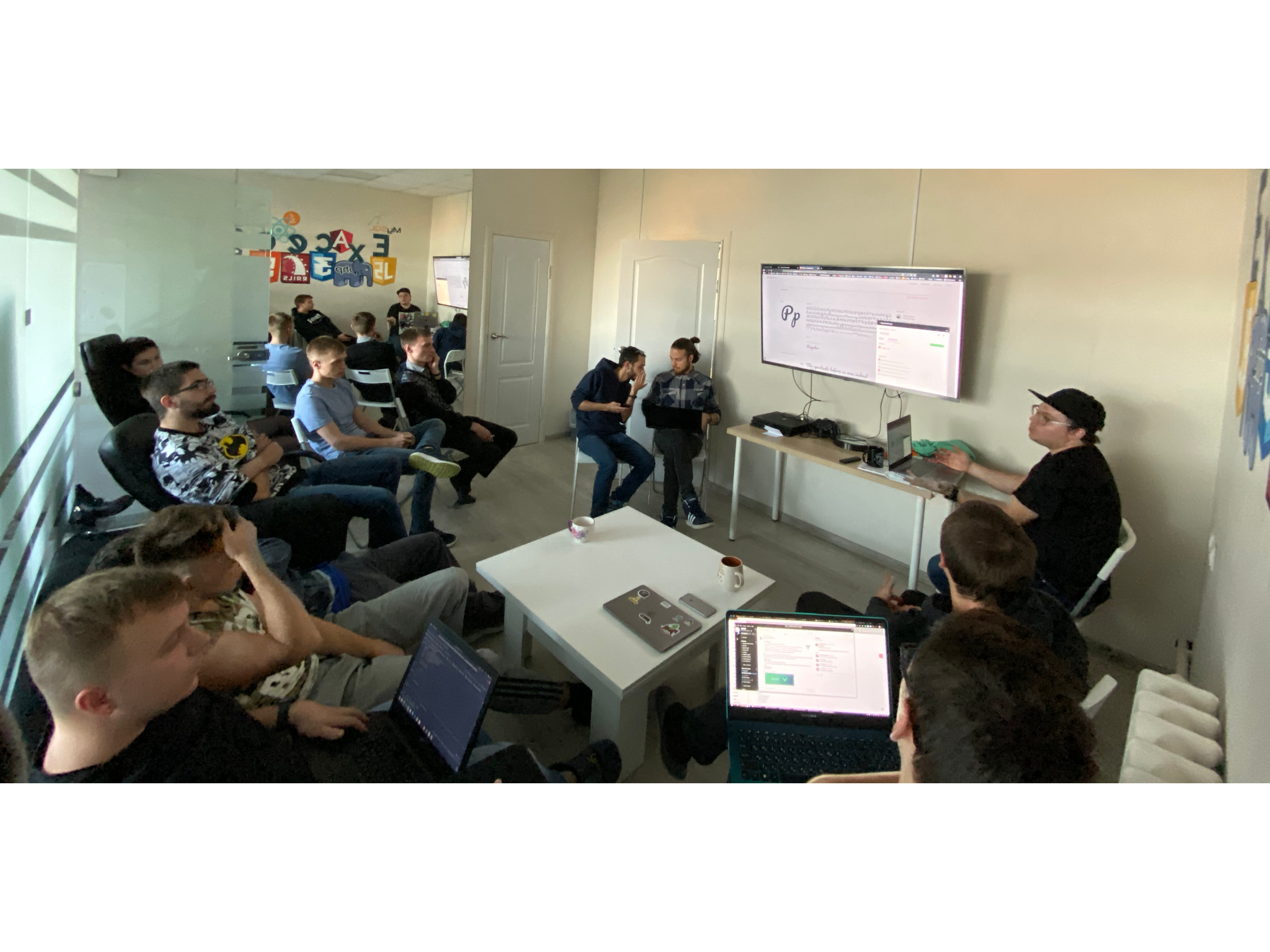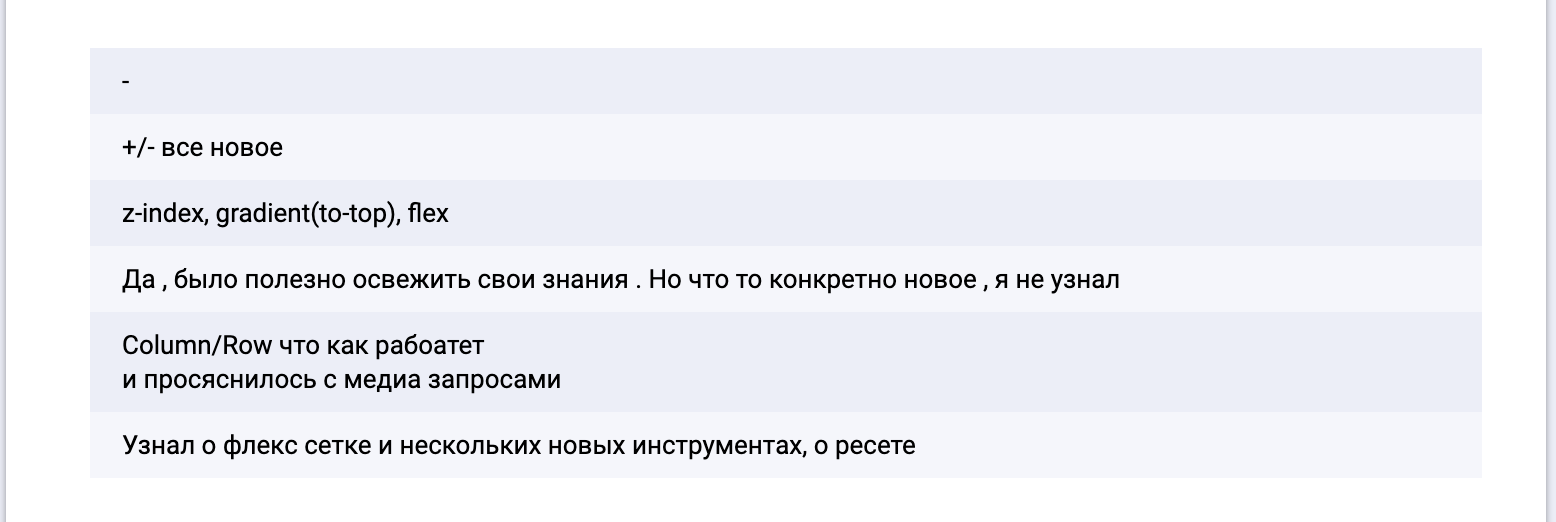
Hi my dear reader. Let me share with you one interesting topic, starting with the question: why do we teach people this way? There are books, courses, videos on YouTube, and generally a whole Google. Build them a training course with links, let them sit and read. But we don’t do this and the matter is not only that we care about our developers (like most companies with more or less adequate management), but that the information looks more clear, is better absorbed and settles faster in memory.
A slight digression necessary for a general understanding of the topic
We train developers from scratch. We assemble a team of people who want to try themselves on the web, and it doesn’t matter if a person came right after graduation, left the factory or, for example, a circus (by the way, these are not just words: we have a great developer who worked in the past as a uniformist under the spreading tent). Almost everyone who came to us for an interview gets a chance to prove themselves (according to statistics, about 90% of people). Naturally, there are people who are eliminated automatically for the following reasons:
“The Web is money . ”
“It's cool to be a developer now, teach me too . ”
“I was just called for an interview and went for nothing to do . ”
No one argues that the web is money. But, as everyone knows, money has long ceased to be a motivator for people engaged in intellectual work. Now money is a natural part of a good and interesting job. Therefore, our main goal is interesting projects with multifaceted tasks that expand the horizons of the developer and benefit the world. And yes, maybe the people from the second and third examples become cool developers, but, as my experience shows, no.
So, let's continue
The second point, which should be discussed in more detail. We have many offices in different cities of Russia. Each team has an average of about 10-15 developers and interns who successfully lead 8-12 different projects with different technology stacks. Someone develops on Angular, someone on React + Redux, Node.js, and it happens that, in general, on jQuery, RoR, Python, PHP, .NET, etc. From here we have the following scenario:
- Trainee comes to study
- Passes the minimum base necessary for understanding the web as a whole (by the way, it takes from 3 days to a month, depending on the person)
- An interesting project is selected, under the guidance of a mentor, for any of the above technologies.
As a result, we have a good / excellent developer on the technology stack with which he works. BUT!

Considering how quickly all this happens and the fact that a person came to learn from scratch, it manifests itself as a bunch of gaps in basic knowledge. To put it mildly, some developers did not know about the existence of flex-box / grid , because this was not used on the project. And you also need to give the developer an understanding of how to quickly master this or that technology, how to read the documentation correctly. It should not go in cycles on one framework and constantly develop.
But what about the fact that people should quickly find a common language?
It's no secret that most developers are introverts and it’s difficult for them to make contact. Exid Monday solves this problem. Do you hate Mondays? But what if I tell you that on Monday you can eat pizza or fry kebabs in the backyard, play board games or PS? You will get the right result. People gradually come together and open up, go to the aid of their comrades with non-trivial tasks, and simply hold interesting and pleasant conversations at lunch or a coffee break. When you feel a warm, family atmosphere, work becomes even more pleasant!
But back to the topic of gaps. They must be closed. Do I need to give individual homework and monitor their implementation? Or do you need to deal with each developer and find out what he lacks?
No. Fortunately, we have a few
1 - HTML + CSS
2 - Git
3 - Javascript ES6 +
4 - Ajax
5 - restful api
6 - databases
7 - webserver websocket
8 - npm yarn
9 - authentications
10 - regular expressions
11 - testing
12 - deploy
What happens next?
The topics are divided between olds , two topics each, and are presented in the form of a report with a presentation to all comers once a week.

After each report, we conduct an anonymous survey to find out if any of the report was useful. And as polls show - it was.

Feedback is also collected for subsequent reports or for the so-called Tech . Wednesday
In a nutshell: Tech . Wednesday has about the same look, but other, more “ advanced ”, topics are told.

And to consolidate the provided topic, we give homework on it.
Output
- Beginners comprehend topics unknown to themselves (or maybe it-zen)
- Oldies recall basic knowledge, which, for well-known reasons, could not be touched for a long time .
- People do not stand still, everyone is constantly evolving and moving in the right direction .
PS I would like to express my deep gratitude to the colleagues in the workshop for the grammatical review of the article and good advice on improving it.